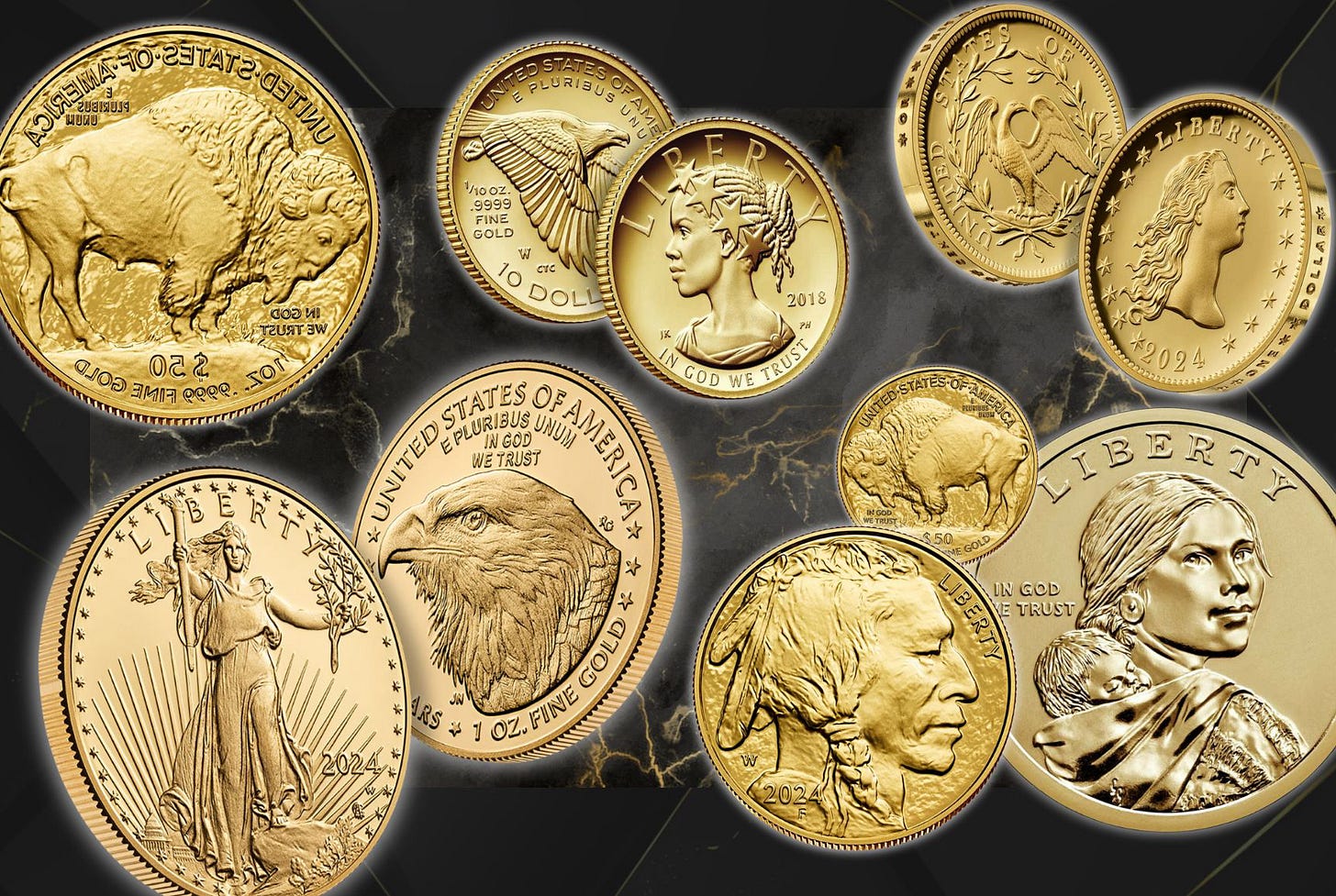The IRS vs. Your Bullion: How to Keep More of Your Gold Profits [4 Ways To Legally Minimize Your Gold Tax]
Think your Gold stash is safe from the taxman? Think again. Even those gleaming American Gold Eagles tucked away aren't as tax-exempt as you might believe.
The IRS doesn't discriminate when it comes to your shiny treasures, and and the rules are more complicated than you'd expect.
There's a side to Gold investing that nobody talks about openly, but today I’m pulling back the curtain.
Buckle up, because we're diving deep into Gold taxation in the U.S.—and how to navigate it without losing your mind (and money).
The Basics: Is Gold Taxable?
So, let's cut to the chase: Is Gold taxable in the United States?
Short answer—absolutely.
But the devil's in the details, and understanding those nuances can make all the difference in your bottom line.
No Exemptions for Certain Coins
First off, one of the biggest myths floating around is that certain Gold coins, like the American Gold Eagle or Silver Eagle, are exempt from capital gains taxes.
Sorry to burst that bubble, but the IRS doesn't play favorites.
Gold, in any form, is considered a collectible asset, and that means it's subject to capital gains taxes when you sell it for a profit.

Short-Term vs. Long-Term Capital Gains Taxes
Now, let's talk about how these taxes actually work.
Short-Term Capital Gains:
If you buy a Gold coin and sell it within a year, any profit you make is considered a short-term capital gain.
This is taxed just like your regular income, meaning it could push you into a higher tax bracket.
So, if you're flipping Gold coins like they're hotcakes, Uncle Sam is going to want his cut, and it's not going to be small change.
Long-Term Capital Gains:
Hold onto that coin for more than a year, and things get a bit different—but not necessarily better.
Long-term capital gains on collectibles, which includes Gold, are taxed at a maximum rate of 28%. That's higher than the 20% cap on stocks and ETFs.
So while you might think you're being savvy by holding onto your Gold for the long haul, the taxman still has the upper hand.
Understanding Your Cost Basis
Your cost basis—the amount you originally paid for the Gold—includes more than just the spot price. It also factors in:
the premium you paid over spot
any additional costs like storage or appraisal fees.
Example: If you bought a Gold coin for $1,600 when the spot price was $1,500, your cost basis is $1,600, not $1,500. That extra $100 isn't just a footnote; it can impact your taxable gains when you decide to sell.
Gold ETFs (like GLD) and mutual funds backed by physical Gold are taxed as collectibles too. Even though you’re trading shares rather than physical Gold, the IRS doesn’t care—the 28% long-term capital gains rate still applies.
Reporting to the IRS (or Why Cash Deals Are Risky)
When tax season rolls around, you report these gains on Schedule D of your Form 1040. If you've had significant transactions, especially those that trigger additional IRS forms, things can get complicated fast.
For example, certain sales trigger a Form 1099-B, which the dealer files with the IRS.
Sell 25 or more one-ounce Canadian Maple Leafs, Krugerrands, or Mexican Onzas, and you're automatically on the IRS's radar.
The same goes for selling one-kilogram Gold bars or $1,000 face value of U.S. constitutional silver.
So How About Cash?
Now, here's where it gets interesting.
Some traders go out of their way to avoid transactions that trigger these forms. Why? Because once a 1099-B is filed, the IRS has a direct line to your Gold dealings.
This is why cash transactions are so popular among certain circles. Buying and selling Gold with cash can leave less of a paper trail, making it harder for the IRS to track.
But let's be real here: skirting tax laws is a risky game. The penalties for tax evasion are steep, and the IRS isn't known for its sense of humor.
If you can't prove your cost basis—say, because you paid cash and didn't keep receipts—the IRS might assume your cost basis is zero.
Implication: That means your entire sale amount could be considered profit, and you'd be taxed accordingly. Not exactly the outcome you're hoping for.
Anti-Money Laundering Measures: Form 8300
Let's not forget about Form 8300, the anti-money laundering measure that requires dealers to report cash transactions over $10,000.
If you walk into a dealer and sell a large amount of Gold for cash, both you and the dealer have reporting obligations.
Some people try to skirt this by selling in smaller increments, but the IRS is wise to these tactics. Structuring transactions to avoid reporting is illegal and can lead to serious consequences.
So where does this leave us?
If you're a Gold trader—or considering becoming one—you need to be smart about how you buy and sell. It's not just about maximizing profits; it's about keeping as much of those profits in your pocket as legally possible.
Choosing the Right Coins to Manage Tax Implications
Some traders prefer certain types of Gold coins precisely because they don't trigger additional IRS reporting.
For example, coins like
Keep reading with a 7-day free trial
Subscribe to The Gold Trader to keep reading this post and get 7 days of free access to the full post archives.






